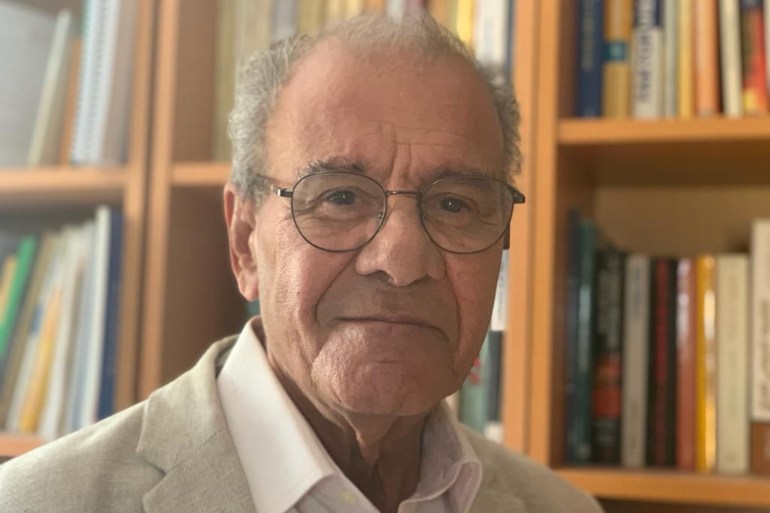BAGHDAD
- Iraq has a lot of natural resources that can generate huge revenues for the country if they are used correctly, and make the Iraqi citizen the highest income in the world.
However, the Iraqi reality is different from that, as about 40% of the Iraqis, who number more than 40 million people, live below the poverty line, according to a report by the World Bank in 2020.
This report examines the loss of decades of development in Iraq despite its richness in natural resources. It also discusses solutions to get out of economic hardship.
Abd Rabbo: Successive governments have not developed any alternatives to relying on oil as a major resource (Al Jazeera Net)
Oil makes up 95% of the budget
Before the discovery of crude oil in Iraq at the beginning of the last century, the agricultural sector constituted about 30% of the country's gross domestic product, at that time the national economy had a strong structure, according to economic researcher Ahmed Abd Rabbo.
Abd Rabbo indicates to Al Jazeera Net that crude oil has begun to control all state resources since its discovery, and so far it has become an "eternal curse" on the Iraqi people, especially since successive governments on the country have not put in place any economic alternatives, while many countries of the world have begun to leave. The rentier system and going towards an open market economy or agricultural and industrial economy.
Regarding government economic plans in Iraq after 2003, Abd Rabbo says that they did not work, attributing this to a lack of internal will. He considered that if oil prices suffered a setback, as happened last year, the government would be unable to pay public sector salaries and fulfill other obligations.
economic system
Economic researcher Miqdam Al-Shaibani says that the directed economic system that manages economic life in Iraq has led to the lack of optimal exploitation of wealth, and has halted the development process in the health, education, industry and other sectors.
Al-Shaibani believes in an interview with Al-Jazeera Net that the free economic system, which is based on non-interference of the state in the wheel of economic life, will be better implemented in Iraq.
He explained that in the free system, the people can find alternatives for living and development other than relying on the government, by working in the fields of agriculture, manufacturing and food industries and moving towards developing the tourism sector.
Shuber stresses the importance of adopting a regulatory policy for the quality of the economic system followed (Al Jazeera Net)
structural problem
The General Coordinator of the Iraqi Economists Network, Dr. Bariq Shuber, considered that the structural problem in Iraq is that the latent wealth that Iraq abounds in and that has not yet been exploited are considered to be the ambitions of foreign countries.
As an example, he explained, there are huge quantities of minerals in the Western Desert, natural gas, associated gas, and even arable land.
In an interview with Al Jazeera Net, an inch considered that "the exploited wealth is not according to the economic and administrative logic," calling for developing plans for the optimal distribution to exploit these various wealth to achieve the greatest economic benefit.
The Economic Coordinator stresses the importance of adopting a regulatory policy for the quality of the economic system, and how to manage it rationally by choosing the legislative and executive authority for legal frameworks and the incentive system for economic activities that create economic dynamics that achieve high growth rates that far exceed population growth rates.
Al-Wondi stressed the need to dry up the financial sources of entities and parties that threaten the country's economic and societal system (Al-Jazeera Net)
outside state control
There is exploitation of the country's wealth by partisan and armed factions, according to Ahmed Al-Wondi, a member of the victory coalition led by former Prime Minister Dr. Haider Al-Abadi.
Al-Wendy told Al-Jazeera Net that most political and party entities, some of which own weapons, are in dire need of financial resources in order to ensure the sustainability of their presence in the Iraqi arena, so they exploit the country's resources without knowledge or without coordination with the government.
And he stresses the need for the Iraqi state to go to the best option, which is to dry up the financial sources of these entities that threaten the economic and societal system through influence and weapons in Iraq.
Raad called for strengthening the fight against corruption, corporate governance and introducing automation systems to save the Iraqi economy (Al-Jazeera Net)
saving the economy
Economic researcher Bassam Raad identifies several solutions to save the Iraqi economy, most notably strengthening anti-corruption measures, working on corporate governance, and introducing automation systems to all activities.
Raad told Al Jazeera Net that "the Iraqi government must rebuild the Iraqi economy by moving from balancing items to balancing programs and performance, as well as diversifying the economic base by working to raise the percentage of non-oil sectors' contribution to the real GDP, and working to increase the sector's contribution. private development process and job creation.
The economic researcher also added that it is necessary to work on a strategy to support and reform the industrial sector, in addition to restructuring foreign trade, and work to encourage exports of materials not available in the country and follow the production strategy for export and the formation of an export sector and the search for products that achieve a competitive advantage, especially manufacturing industries.

